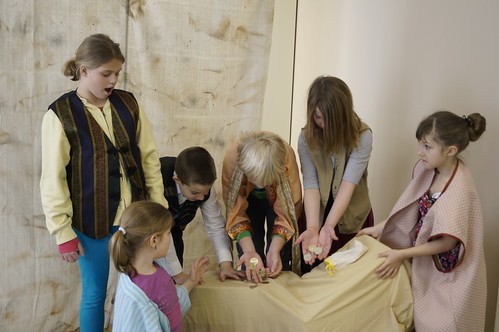It is Thursday and that means our post for today in our Holy Week series, focuses on Jesus and his disciples at the Last Supper and in the Garden of Gethsemane. Time to gather your family around the computer screen – scoot in close so you can see – for a quiz of sorts. (And a chance for some family discussion.) Remember, scroll just enough to see a question. Before scrolling further down, see if anyone knows the answer.
First, a picture of some kids reenacting the Last Supper.
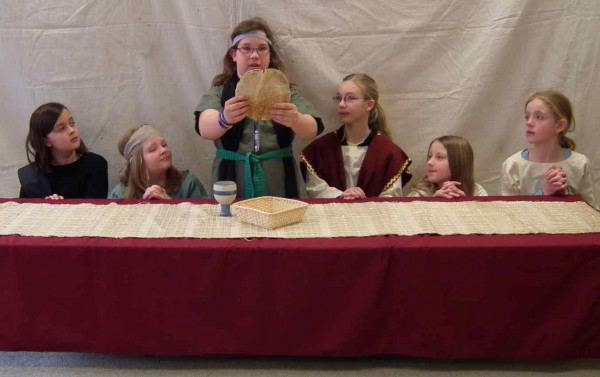
Time Out. Talk about… Two questions: Why do we call it the “Last Supper” and they were celebrating some sort of special occasion – what was it?
Two questions: Why do we call it the “Last Supper” and they were celebrating some sort of special occasion – what was it?
It is called the “Last Supper” because it was the last time that Jesus and his disciples ate together before Jesus was killed. They were celebrating the Passover feast.
Time Out. Talk about… The Passover feast? What is Passover?
The Passover feast? What is Passover?
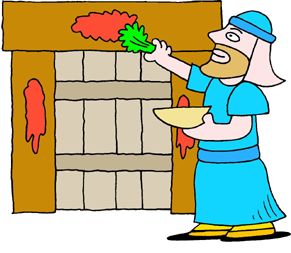
Passover refers to when the Israelites were slaves in Egypt. That is when the very first Passover occurred. God had brought a series of plagues on the Egyptians, to persuade the Pharaoh to free the Israelites so they could leave Egypt.
The last plague (out of a series of ten; that Pharaoh was a tough cookie!) was the plague on the firstborn; every first-born son was killed. The Israelites, however, were safe. This plague “passed over” their houses because they had been instructed to mark their door posts with the blood of a lamb.
God had told the Israelites that they should have a special meal every year afterwards to commemorate this saving event. This meal is full of symbolic foods that help the Israelites (and Jews today!) re-tell the story – and remember.
Time Out. Talk about… Jesus did something special at this meal, which we use today to remember. What was it that Jesus did?
Jesus did something special at this meal, which we use today to remember. What was it that Jesus did?
Luke 22:19-20 tells us that during this meal Jesus took bread, and when he had given thanks, he broke it and gave it to his disciples, saying…
 This is my body, which is given for you. Eat this as a way of remembering me!
This is my body, which is given for you. Eat this as a way of remembering me!
After the meal he picked up a cup of wine and gave thanks to God. He then gave it to his disciples and said…
 This is my blood. It is poured out for you, and with it God makes his new agreement.
This is my blood. It is poured out for you, and with it God makes his new agreement.
Time Out. Talk about… Breaking bread… a cup… that sounds real familiar! I hear that when….
Breaking bread… a cup… that sounds real familiar! I hear that when….
That’s right, Communion. When we eat of the bread and drink of the wine (we use grape juice) we are remembering Jesus.
Time Out. Talk about… Where did Jesus and his disciples go after they finished their meal? (Hint: the photo below shows)
Where did Jesus and his disciples go after they finished their meal? (Hint: the photo below shows)
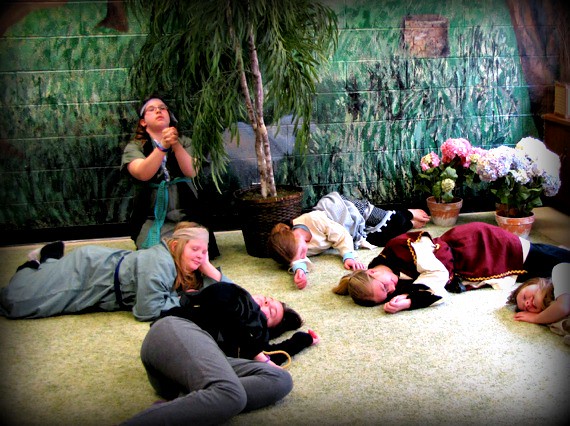
They go to the Mount of Olives and the Garden of Gethsemane. Jesus knows that his time on earth is short. He is compelled to spend time with God in prayer. He asks his disciples to pray and he goes about a stone’s throw away to pray.
Time Out. Talk about… What was he praying about?
What was he praying about?
With much anguish Jesus prayed…
 If it is possible, let this cup of suffering be taken away from me. Yet I want your will to be done, not mine. Matthew 26:39.
If it is possible, let this cup of suffering be taken away from me. Yet I want your will to be done, not mine. Matthew 26:39.
Time Out. Talk about… (No right or wrong answers here!)
(No right or wrong answers here!)
- When Jesus spoke about his body and his blood, do you suppose the disciples understood what he was talking about?
- What does Communion mean to you?
- What do you make of Jesus’ prayer in the garden? What does it teach you about Jesus?
- The disciples ended up falling asleep in the garden. How would you have felt if you had been there and had fallen asleep on the job?
Stay tuned for the next installment of our series on Holy Week.
Photo credits:
Last Supper and garden photos by Evans or Maria Koukios, © 2011, used by permission.
Passover clipart by Richard Gunther, sourced via ClipArt.com and used with permission.
Speech bubbles via WPClipart.com. Quote marks via Clker.com. The last two are in the public domain.





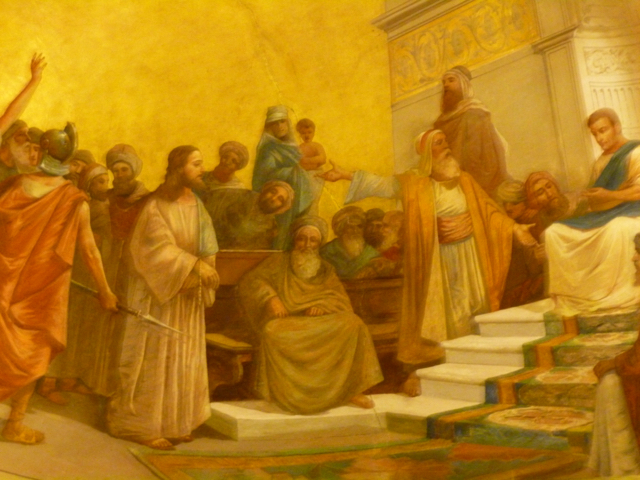
 Why do you suppose it’s called “Good Friday?” What can be good about the day Jesus died?
Why do you suppose it’s called “Good Friday?” What can be good about the day Jesus died? Actually there is no known correct answer to this question. The Friday before Easter being called “Good Friday” could have come from the shortening of an English phrase “God’s Friday” much like the word, “good-bye” originally started off as
Actually there is no known correct answer to this question. The Friday before Easter being called “Good Friday” could have come from the shortening of an English phrase “God’s Friday” much like the word, “good-bye” originally started off as 




